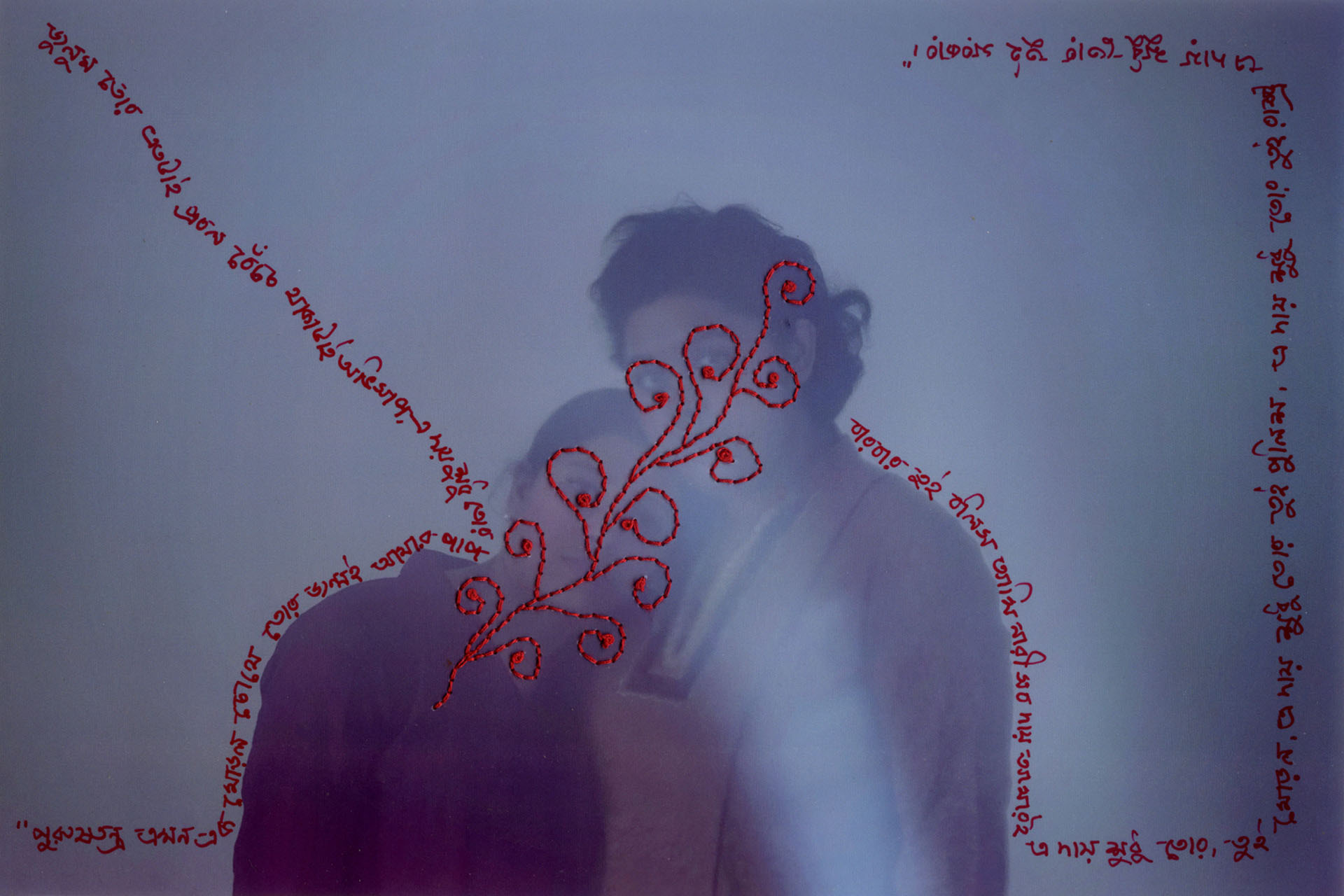
River Runs Violet | Sumi Anjuman
In my country, Bangladesh, being raised as a woman or gender minority involves navigating an entrenched patriarchal landscape. Throughout my life, I have witnessed the many struggles faced by those resisting a system that has shaped our society for generations. Gender minorities are under the constant threat of fear and violence.
Against this backdrop, Bangladesh is seeing a rise in sexual violence, with an average of nearly four women, girls, and children being raped every day. Social scientists, lawyers, and field-level crime investigators have found several contributing factors: a culture of impunity, abuse of power, political inaction, a lack of accountability of concerned agencies, and a decay of social values. In this terrifying reality, even our subconscious is possessed by the fear of being raped.
At this intersection, Zana (a pseudonym) and I engaged in a distinctive visual dialogue titled The River Runs Violet, as a non-violent protest against the deeply rooted gender-based violence and abuse in Bangladesh. Zana’s reflections as a rape survivor, along with my own experiences as a woman raised in the same environment, led us to embrace photography as a shared space to articulate emotions of fear, uncertainty, anguish, solidarity, and resistance. More importantly, it became a means of ‘healing through creation’ for both of us.
To convey these emotions, we hand-stitched onto photographs, layered text over them, sketched with white ink, pierced their surfaces with needles, created collages from collected images, and ultimately re-photographed the outcomes. These acts transformed our exchange into a multivocal visual correspondence – where responses from each side took distinct forms, yet collectively and synchronously interrogating this context.
About the Photographer
Sumi Anjuman’s journey through the rigid structures of Bangladesh’s Muslim conservative socio-cultural framework has been a relentless struggle, mirroring the silent battles endured by countless women and gender-divergent collectives. These visceral experiences have attuned her to the gendered oppression that runs through shared memory. In response, she uses photography as a form of quiet resistance, amplifying silenced voices, celebrating defiance, and embodying a nonviolent protest against the deep-rooted gender-specific violence woven into the fabric of society.
To pursue this vision, Sumi embraces a distinctive documentary photography approach she calls “healing through creation” – a collaborative process with the subject matter that allows for the creation of layered visual narratives, challenges dominant discourses, and encourages audiences to rethink preconceived notions of context. She integrates staged photographs, hand-stitching on photographs, textual layers, moving visuals, re-photographic methods, and archival materials to craft a visual narrative that transcends time and invites reflection, resistance, and a profound connection with the collective consciousness.
Sumi Anjuman is currently based in Dhaka, Bangladesh, where she teaches at Counter Foto – A Center for Visual Art. She holds a master’s degree in Photography & Society from the Royal Academy of Art in The Hague, The Netherlands, and previously completed a three-year diploma in Photography at Pathshala South Asian Media Institute in Dhaka.
WIFP 2025 Exhibition
Objectifs Chapel
10/10/2025 – 23/11/2025
Free Admission
